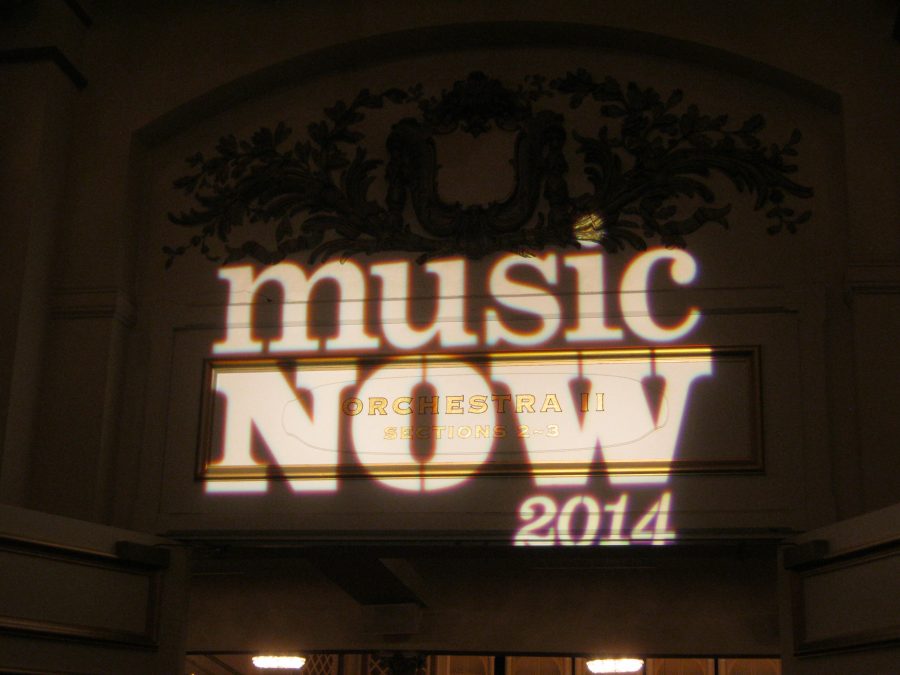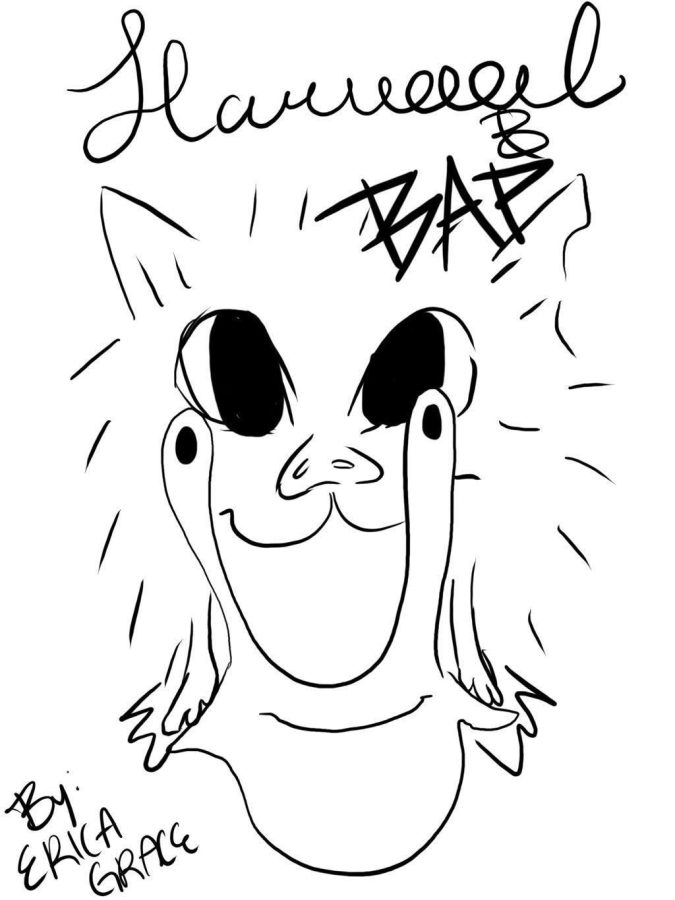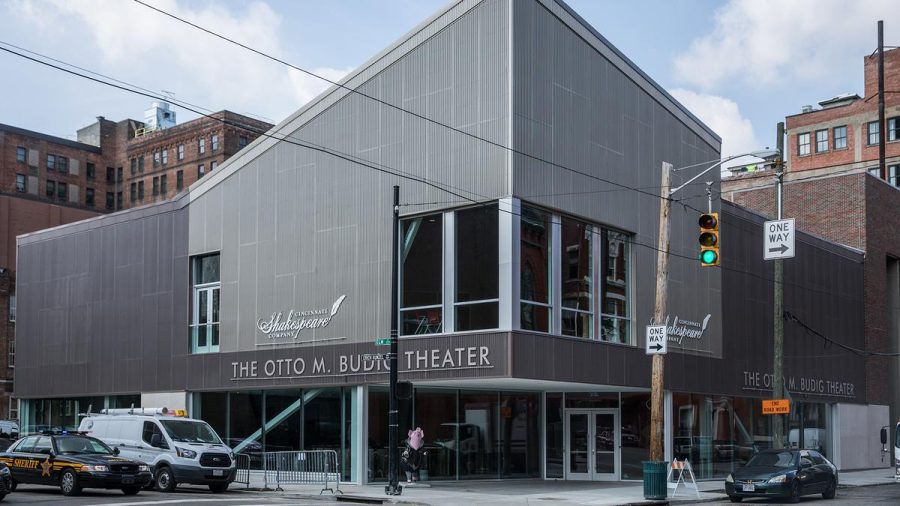By Elizabeth Miller ’15, Co Editor-in-Chief
Walking into Music Hall, it was easy to tell that it was not a normal night at the symphony. Along with the usual crowd of middle-aged and older men and women in classy attire, there was an unexpected addition: funky outfits, ray-ban glasses, suspenders, unruly beards, backwards newsboy caps, plaid flannels, odd hairstyles, and my favorite, mustard yellow tights. One might have described it as a hipster invasion.
MusicNOW, held at Music Hall, took place on March 21 and 22. Created by Bryce Dessner, a Country Day alumnus, the two-night festival entered its ninth year with a new twist: collaboration with the Cincinnati Symphony Orchestra. Dessner explained in his opening speech that the goal of his project is “stewarding this music into the future” with experimental and ground-breaking music.
Night One
The first night began with eighth blackbird, a six-person instrumental group full of stage presence, performing “Murder Ballades”, a piece composed by Dessner. Playing the piano, clarinet, flute, cello, violin, piccolo, and various percussion instruments, the six artists worked together effortlessly while performing the 20 minute long piece. The strikingly different sections of the piece, which ranged from a slow ebb and flow to perky folk-inspired tunes, were separated by long pauses, yet fit together seamlessly.
A short intermission followed while the Cincinnati Symphony Orchestra set up, and were joined by two electric guitars. Aaron and Bryce Dessner, playing Fender and custom-made guitars, respectively, performed another piece written by Bryce Dessner, “St. Carolyn by the Sea”. Although both were using their signature pedals for loops and effects, and jamming out as they would at a concert for their band, The National, the brothers were nearly unrecognizable as they sat down, read music, and followed a conductor. The largely minimalistic piece was intensified with quick riffs, orchestral buildups and quick strumming, and sliding chords. The electric guitars were extremely out of place in the symphonic setting, however they fit into the piece effortlessly, and it was often difficult to distinguish between the orchestra and the guitars.
The second section of the night was introduced by the excited composer Nico Muhly. Quirky and nervous, and sporting a tuft of longer hair off to one side, Muhly presented the world premiere of his piece, “Pleasure Ground”. The song tells the story of architect Frederick Law Olmsted in three sections: his “youthful optimism,” “time in the war,” and “last years.” Performed by operatic baritone Nathan Wyatt and the CSO, the piece manifested itself in anecdotal and descriptive lyrics, and discordant yet powerful clashes of voice and instrumentation.
The only non-contemporary piece of the night was “The Poem of Ecstasy”, composed by Alexander Scabrian in 1924. Full of clarinet, piccolo, trumpet, and violin solos, the piece was performed with expertise and precision by the full symphony orchestra. Conductor Louis Langrée, an extremely charismatic and dramatic Frenchman, wielded his baton in a kind of dance that seemed to almost kill him. After a series of spectacular crescendos, the triumphant explosion over the top at the end provoked a standing ovation.
Night Two
Opening the second night, Olga Bell filled the lobby with a surprisingly powerful yet angelic voice and bizarre electronic music. A petite bottle-blonde woman wearing silver Chucks and sporting leg tattoos, the one (wo-)man powerhouse possessed the endearing quality of the classic slightly-awkward-but-bursting-with-stage-presence that is so common in indie music.
After the disconcerting mix of hipsters and symphony-goers had taken their seats, Dessner began the night with the quip: “Welcome to the closing night of MusicNOW!” He then introduced Bonnie Prince Billy, a rather odd member of the festival. A well-known folk singer, Billy did not exactly fit into the mold of adventurous classical music. However, his performance was absolutely worth the discontinuity, as the short man in a wrinkled royal blue pantsuit made the entire hall hang onto his every note. His beautiful, heart-breaking voice, classic folk guitar, and haunting, detail-oriented lyrics created a flawless and enchanting experience. His short set was most likely the most remised aspect of the night.
The next two pieces, performed by a smaller section of the CSO made up only of string instruments, quickly woke the audience from the spell of Bonnie Prince Billy. Before beginning, the conductor, Langrée, instructed everyone to “fasted your seatbelts,” advice that was certainly necessary. “Polymorphia” and “48 Responses to Polymorphia” are without a doubt the most bizarre and creepy pieces of music in existence. Low, fluctuating bass notes, creaking from the cellos, and high, eerie tones from the violins characterized both pieces. There was even a section where the entire orchestra cast aside their bows in favor of bean pods. The general response from the audience was a combination of “What did I just listen to?” and “Can I hear that again?”
Outdoing the potential sound effects for a horror film, the highlight of the night for most of the hipster-attendees was a surprise performance by 60% of The National at intermission. Aaron and Bryce Dessner were joined by (unexplainably barefoot) drummer Bryan Devendorf for a jam session. With pedals, two electric guitars, and a small drumset, the threesome managed to create much of the classic sound of their band without the aid of bassist Scott Devendorf and singer Matt Berninger.
Opening the second section of the night, David Lang presented the world premiere of his piece “mountain” with an explanation of his inspiration: a mountain in Vermont that he enjoyed watching until small things changed. The story made sense once the piece began, as it was extremely repetitive with very long stretches of silences. Slowly, slight changes to the music were introduced, so that they went unnoticed until fully incorporated into the rest of the music. Closing the night with Prokofiev’s “Scythian Suite”, a huge symphony piece with an explosion of sound at the end, the festival literally ended with a bang.
MusicNOW certainly reached new levels this year, as it incorporated contemporary classical music into its usual cycle of indie music. However, it will certainly take a few years before a strong balance is found between one style and the other. Certainly worth the experience (the good, the odd, and the downright weird), MusicNOW offers quite the opportunity for music enthusiasts.






